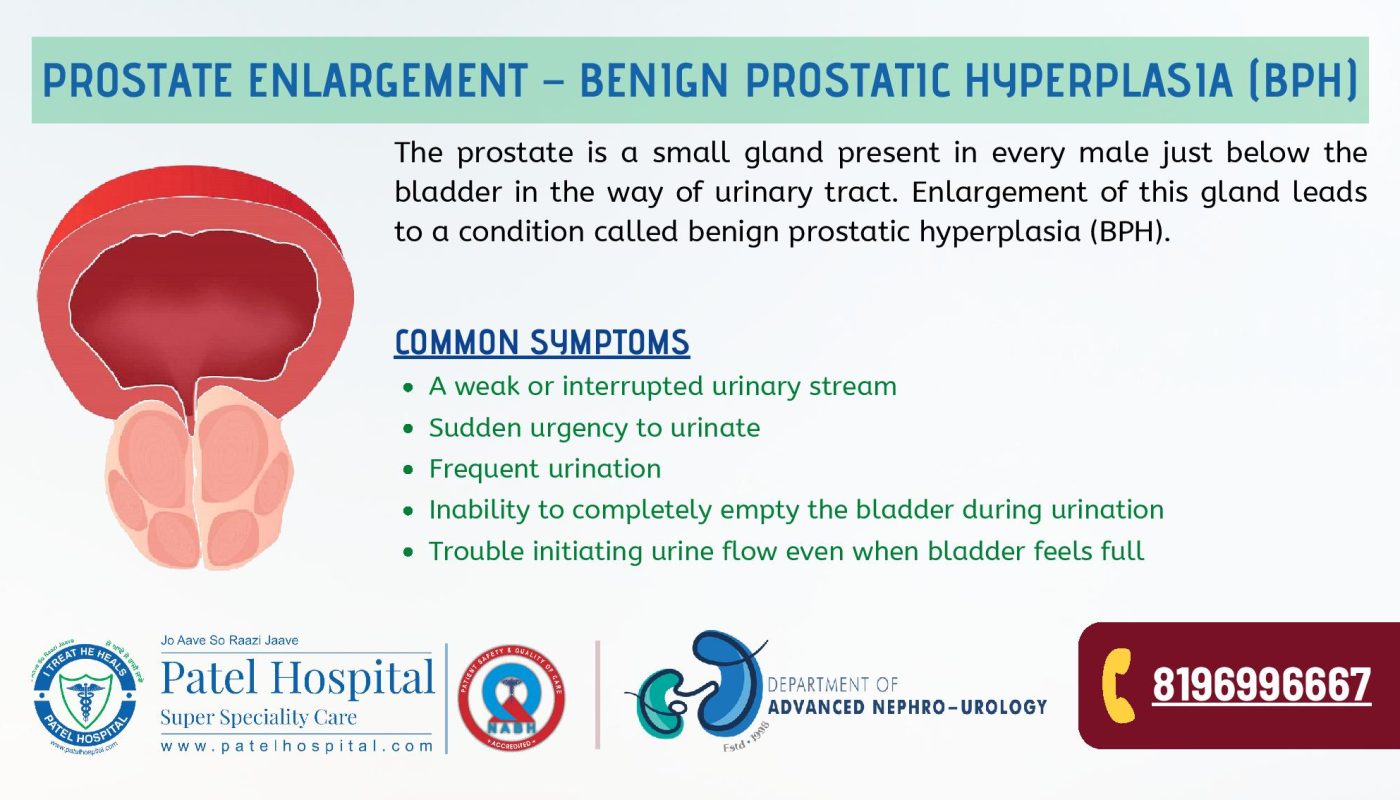Prostate Enlargement
The prostate is a small gland present in every male just below the bladder in the way of the urinary tract. The size of the prostate generally remains more or less the same till about age 40 years when usually it starts enlarging. Prostate enlargement occurs in every normal male though the rate of increase may vary with race, familial factors, etc. Although an increase in the size of the prostate is associated with the chances of having urinary symptoms, it may not always be true to be so. A large prostate may cause none to little symptoms and minimal enlarged to normal prostate may cause urinary symptoms to few patients. The enlarged prostate may affect by irritative or obstructive symptoms.

Irritative symptoms of Prostate Enlargement
- Frequency – passing urine too frequently than before
- Urgency – Inability to hold and postpone passing urine and need to rush for the washroom at first thought
- Nocturia – getting up from bed at night for more than once
- Dysuria – burning sensation while passing urine
Obstructing symptoms of Prostate Enlargement
- Poor flow – having urinary stream which is weak
- Intermittency – urine flow interrupts many times and does not get completed in one flow
- Incomplete evacuation – a feeling of having passed urine not completely and persistent urge to pass urine even after finished voiding
- Straining – passing urine with the push or need to strain for passing urine
- Hesitancy – taking a long time to initiate the urinary flow
- Post void dribbling – the continuous passage of urine in drops once finished passing urine
The presence of the above symptoms points towards something wrong in the urinary system and most commonly due to prostate once age crosses 50-60 years. The symptoms are then graded to place each patient in certain risk groups by the physician and appropriate investigations and subsequent treatment of enlarged prostate are initiated for each risk group. Not all patients require surgery for enlarged prostate and medicine is appropriate for patients with minimal symptoms. Passing blood in urine is the ominous sign after 60 years and may point towards something more serious happening inside and need to be evaluated promptly.


